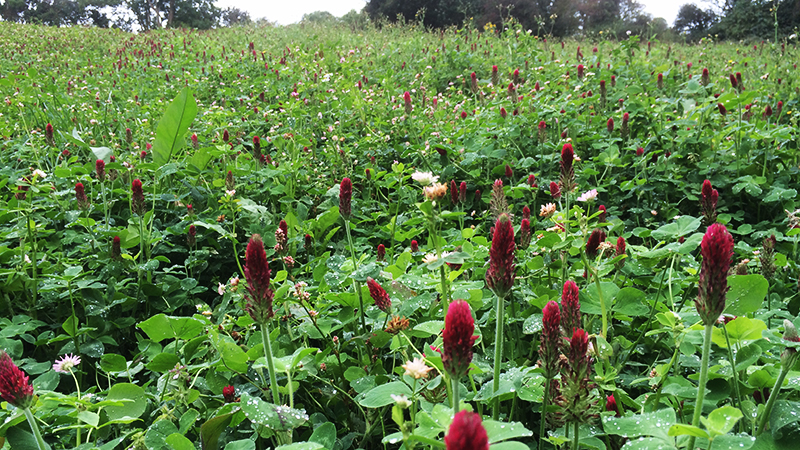
A new INRAE led study has been published looking into a clear option space for expanding organic agriculture despite nitrogen limits.
Recognising that one of the limits of widespread organic farming is the limited nitrogen resource in the soil, the scientists from INRAE, the University of Bordeaux, Vrije Universiteit Amsterdam, The University of British Columbia, and the University of Reading modelled for the first time the effect on the global nitrogen cycle of meeting global food demand through the expansion of organic agriculture.
The team developed a model simulating what would happen to nitrogen supply and demand based on a hypothetical shift in a share of agricultural land used by organic farming, looking at scenarios from 20% up to 100% of world crops in organic farming.
Using current farming practices and food consumption, their results show that the development of organic farming is accompanied by a marked nitrogen deficit in many regions of the world, suggesting that available natural nitrogen resources for fertilising cropland soil would not sustain a move to 100% organic farming. However, changes to livestock food production and consumption of food around the world as well as significant reductions in food waste could see between 40-60% of agricultural land being used for organic farming.
Changes such as a reduction in meat consumption of 75%, largely from white and pink meats would need to be enacted around the world in order to ensure enough nitrogen was available. However, increases in small ruminant animals (sheep and goats) would occur as a result of their importance in organic systems.
The modelling suggests that if organic agriculture is implemented in combination with other demand- and supply-side measures, such as reduced food waste and lower food intakes, there is a vast feasible option space for increasing the uptake of organic agriculture.
“The environmental benefits of organic farming are unquestionably important as the world feels the effects of man-made climate change, and our research shows that there is clear potential for upscaling the organic approach, despite nitrogen limits.
Our research also shows that based on how the world is eating now with vast overconsumption of resource-intensive food in some countries, it would not be possible to adopt organic farming as the main agricultural method.
However changes to policies on livestock production, reductions in food waste and widespread consumer adherence to more sustainable diets could mean that anything up to 60% of agricultural land could be used for organic farming whilst still supporting global food demand.
Livestock farming was a key consideration for our research due to the impact that it has on nitrogen being put into the soil. Clearly there are other considerations to be made about the long-term environmental impact of dairy and cattle industries, but it goes to show that there needs to be a balance in order to create a more environmentally sustainable food system.”
Dr Laurence Smith, Lecturer in Agricultural Business Management at the University of Reading who is a named author on the paper
If you want to find out more, please click here.
